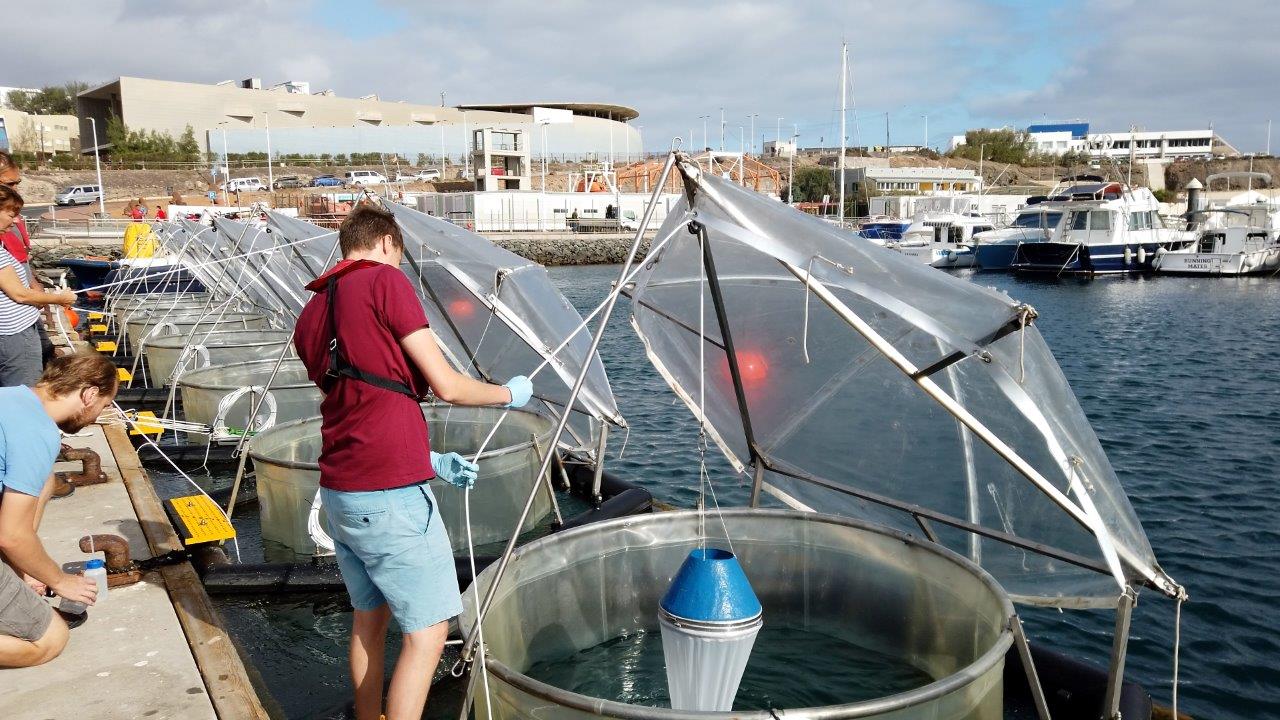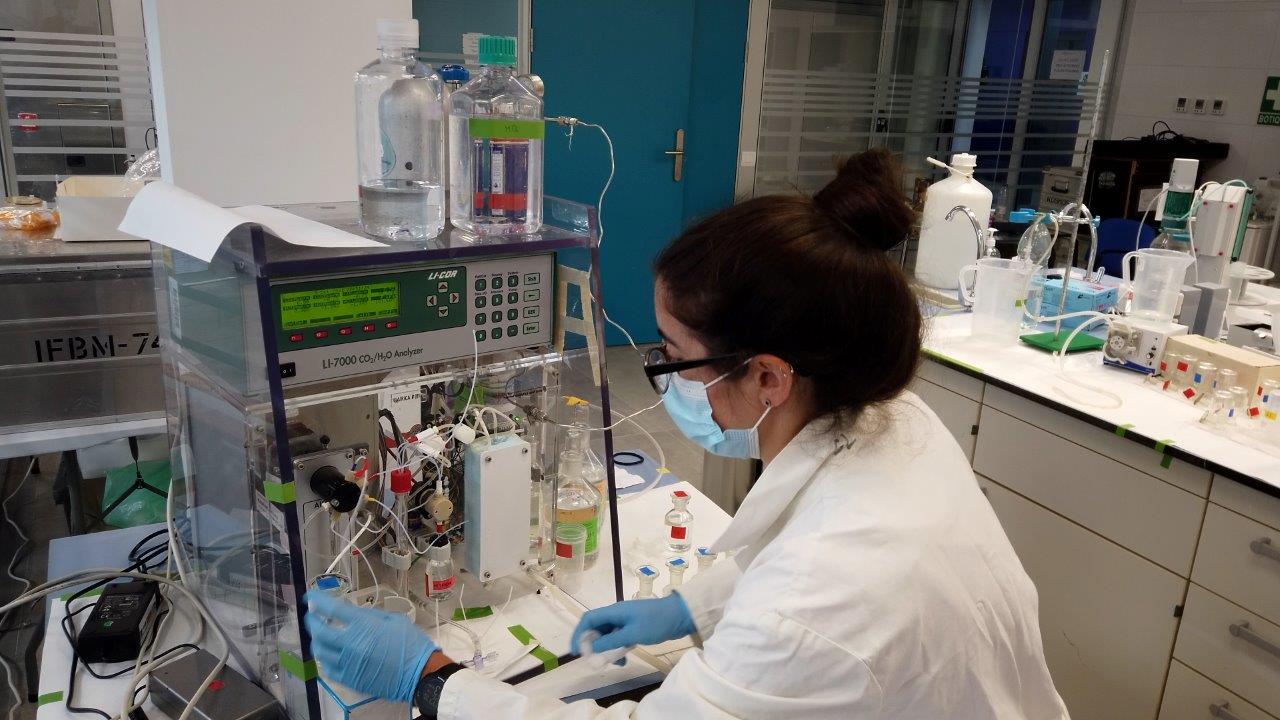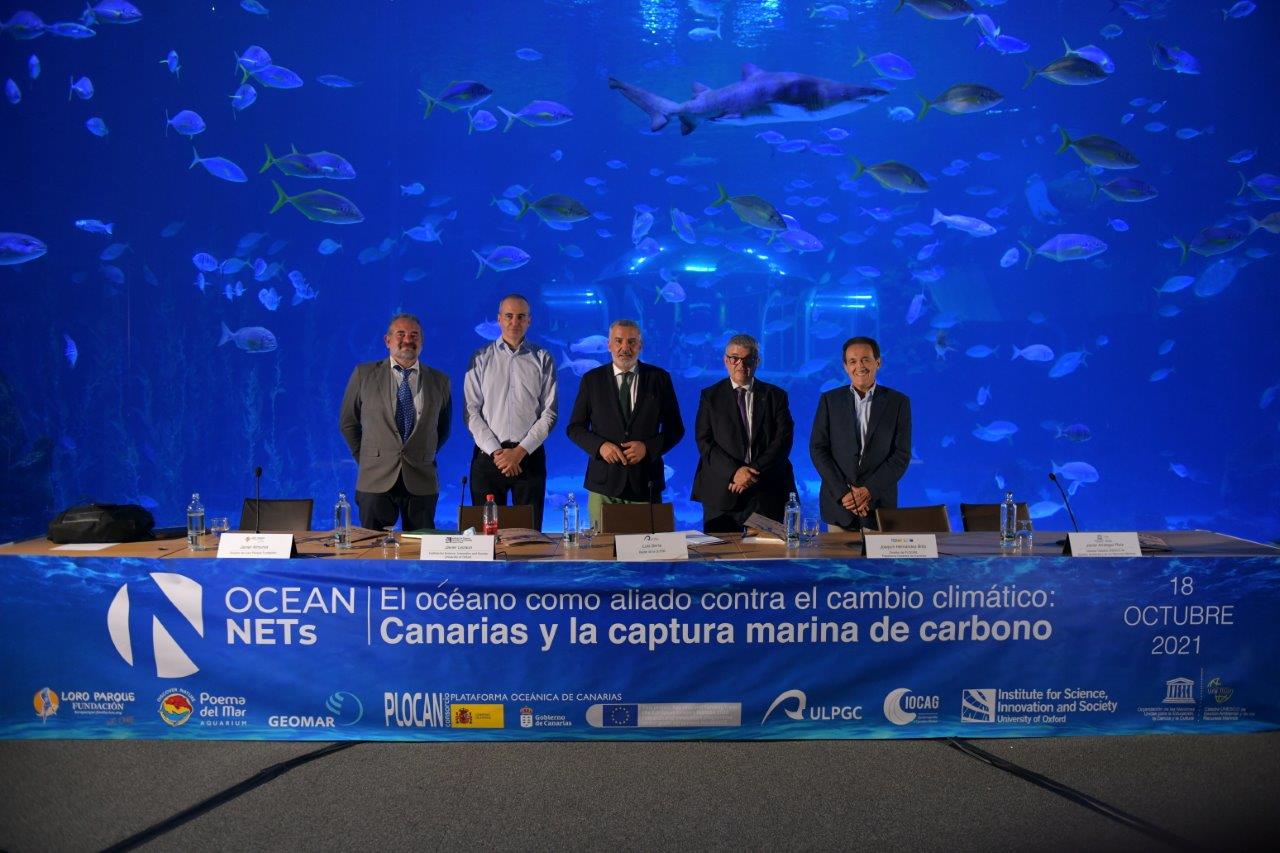
The Poema del Mar Aquarium was chosen by the University of Las Palmas de Gran Canaria (ULPGC) as a setting to present the preliminary results of the European scientific project OceanNETs, which studies the potential of the oceans in the extraction of the carbon dioxide from the atmosphere and the reduction of the climate change. This research, coordinated by the GEOMAR Institute of Germany, and which the Oceanic Platform of the Canary Islands (PLOCAN) participates in, has chosen the waters of the Canary Islands to test the technology developed specifically for this project, which aims to increase the sea's capacity to absorb CO2 and reduce the greenhouse effect.
The scientific dissemination meeting took place in Deep Sea, the largest exhibition of Poema del Mar, and was particularly attended by the researchers of the project, the rector of the ULPGC, Lluis Serra; the director of the UNESCO Chair of the Sea, Javier Aristegui; the director of PLOCAN, Joaquín Hernández Brito, and the director of the Loro Parque Foundation, Javier Almunia.
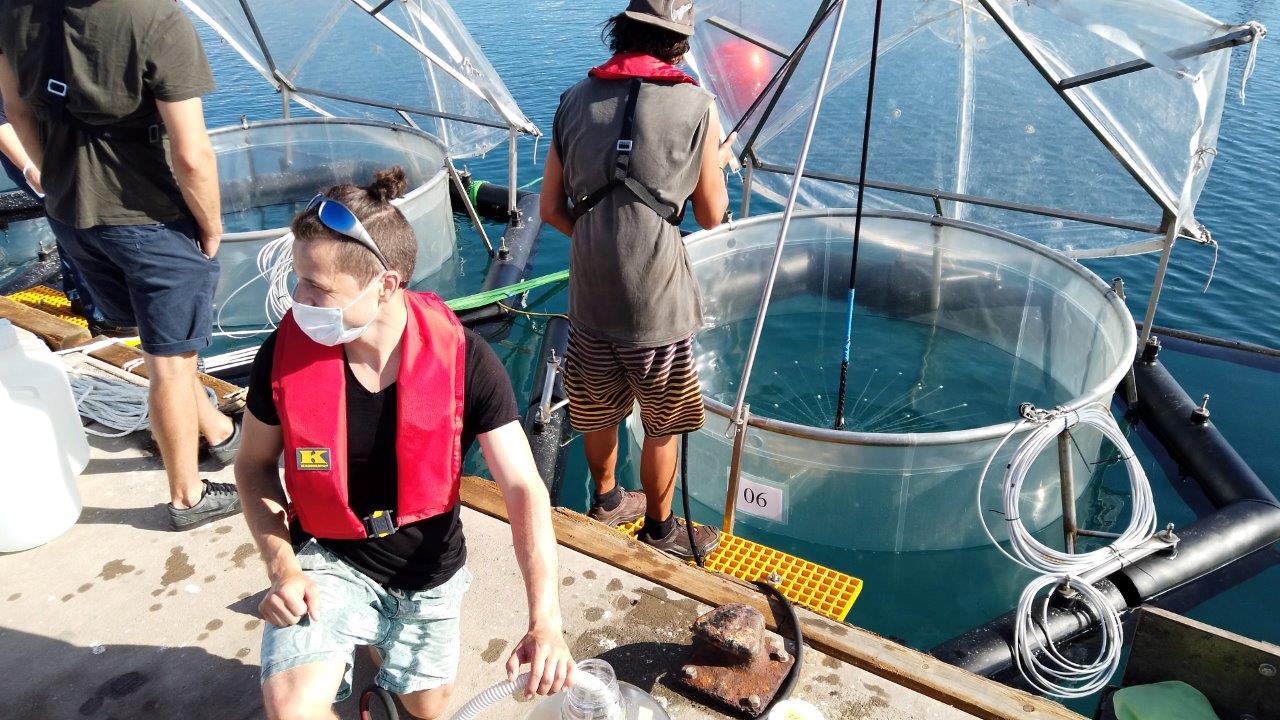
This is the first experiment carried out in the world to evaluate the safety and effectiveness of marine alkalinisation, a technology that could be key to achieving the objectives established in the Paris protocols that aim to keep global warming to no more than 2ºC. Thus, the OceanNETs project, in which the director of the UNESCO Chair in Environmental Management and Marine Resources of the ULPGC, Javier Aristegui, participates, is a pioneer in the development of knowledge and technology for carbon sequestration in the ocean. It also involves the participation of renowned European researchers from Norwegian, Finnish, German and UK institutions.
"The aim of OceanNETs is to determine to what extent, and under what conditions, the deployment of ocean-based negative emissions technologies could contribute to viable, sustainable and effective ways for Europe and the world to achieve not only climate neutrality, but also to be able to remove a large part of the CO2 already emitted from the atmosphere," explained Javier Arístegui. The project also aims to identify and prioritise the options with the greatest potential to contribute to CO2 reduction, measure environmental impact, risks, as well as technical feasibility and cost-effectiveness, and social acceptance.
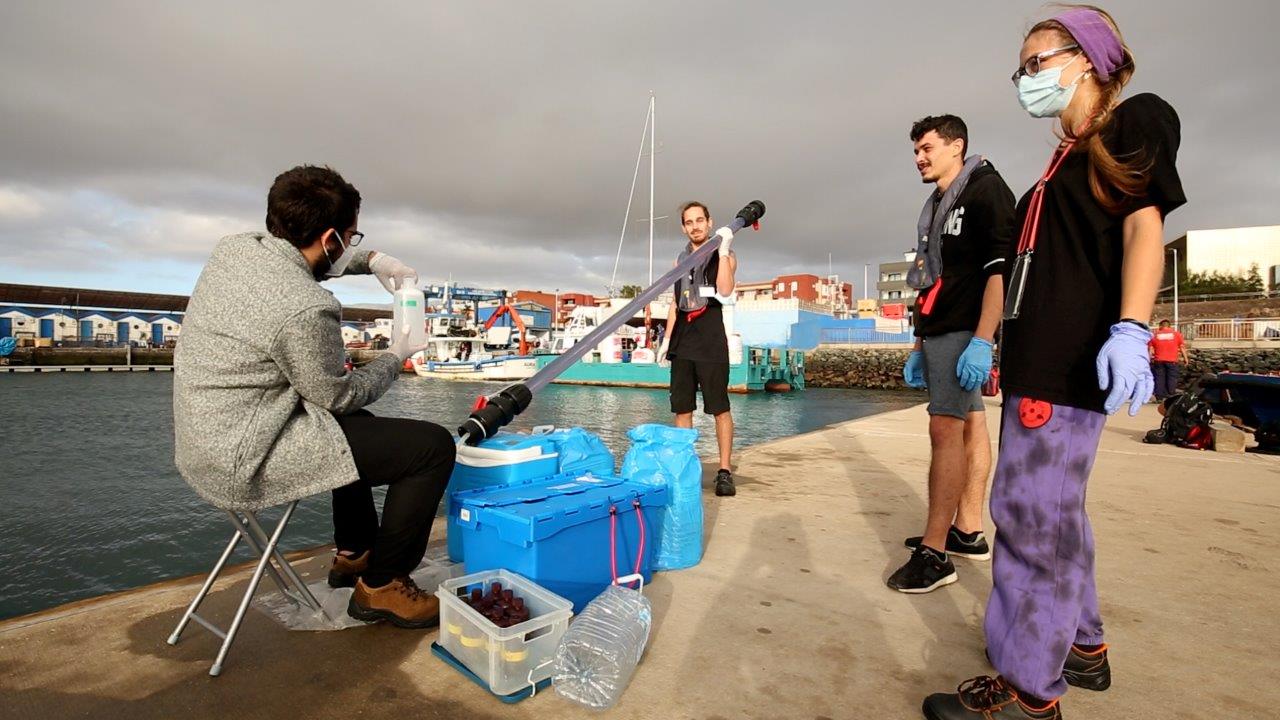
For his part, the director of PLOCAN, Joaquin Hernandez Brito, stressed "the importance of the scientific and technical infrastructures of the Canary Islands, which make the archipelago a privileged test platform for the development of the marine technology of the future, capable of attracting large European projects". The rector of the ULPGC, Lluis Serra, also spoke along the same lines, highlighting the importance of "considering research as an investment and a driving force for progress, and not simply as an expense".
Finally, after the meeting, the foundations were laid to transfer the potential of this technology for the development of the blue circular economy to society and the business world.
